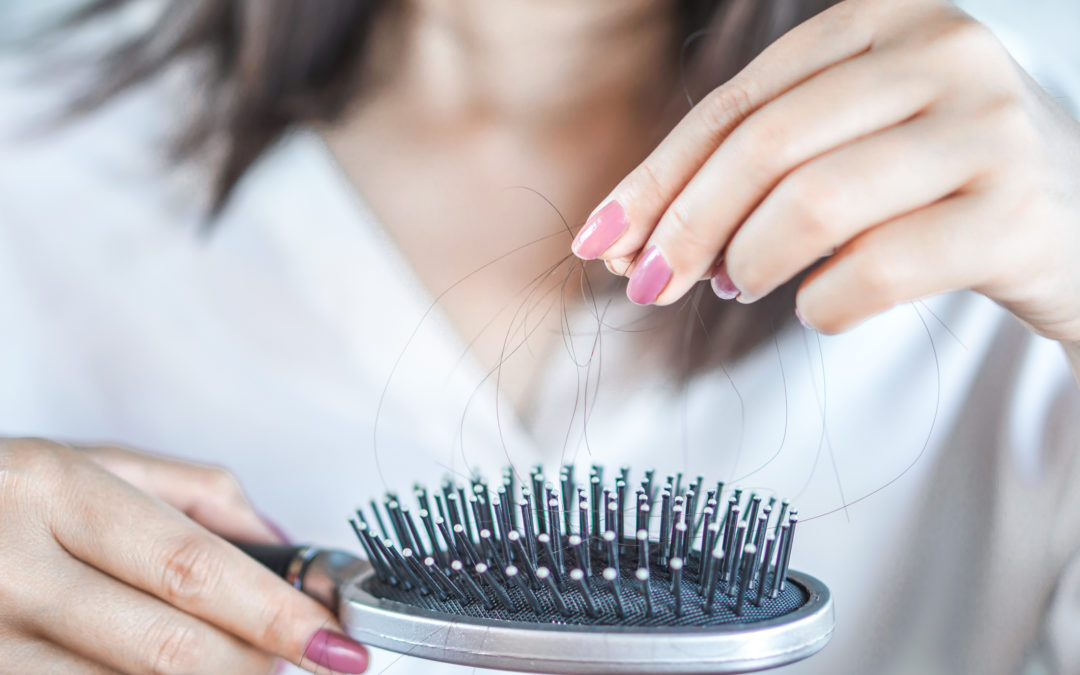Can hair get thinner during the menopause?
By: Kathie Cooke, Registered General Nurse, Menopause specialist from Menopause Expert Liverpool
Many women find their hair loses volume and length around menopause; hair can also become brittle, fragile and break more
easily. Some women also notice hair thinning and shedding, particularly around the hairline and crown, known as female
pattern hair loss (FPHL). Common signs of menopausal hair thinning:
- Ponytail is thinner
- Hair not growing as long as it used to
- Parting is wider and scalp is more visible around the crown
- Recession and/or thinning at temples
- Reduced thickness and length of each strand
These changes can be really stressful since our hair is a very important aspect of our identity. Other unwelcome changes to our appearance may also be happening around the same time, leading to further distress. The hair growth cycle is affected by hormones, so therefore the fluctuating hormones around menopause can adversely affect hair health. Around 40% of women will experience deterioration to their scalp hair around menopause.
Oestrogen is recognised as being hair-protective and encourages hair growth. HRT can often improve hair condition however, some women feel HRT worsens hair loss for them. Testosterone can also have a negative effect on scalp hair; women whose hair follicles are sensitive to dihydrotestosterone (DHT) will experience more pronounced hair thinning around menopause.
What can be done?
– Reduce use of hair-damaging tools such as straighteners and dryers and use good quality, gentle, thickening shampoos and
conditioners. Caffeine-based shampoos can also help, but must be applied as described, and used consistently.
– Seek advice from your hairdresser about layering and styling to maximise volume and disguise thinning areas.
– Avoid wearing hair tied back as this can put strain on fragile hair strands and encourage breakage. Invest in good-quality,
genuine brand combs and brushes designed for weak and damaged hair.- HRT can help, but not always.
– Aim for a healthy balanced diet, and lower stress levels.
-Lotions containing minoxidil (the only product licenced for FPHL) can be bought without prescription, although stronger
doses and other medications are available on prescription.
– Supplements, and low-energy laser devices, do not have sufficient long-term data to understand their effectiveness, or
safety.- Some medications (for example some painkillers, antidepressants and blood pressure medications) can cause hair loss. Speak to your GP if you suspect this is the case.
– Remember to protect the scalp from sunlight to prevent sunburn. Menopausal hair loss does usually settle down over time.

